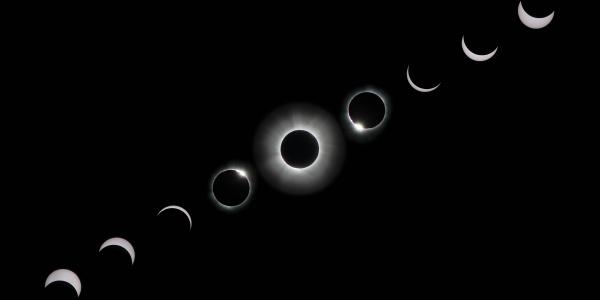Saturday Science Lecture with Manel Errando on Eclipses Through Time: Unveiling the Celestial Tapestry of Human History
Over 2,000 years ago, on May 28, 585 BC, a historic battle unfolded between the Medes people and the Lydians. Strikingly, the conflict ended abruptly in the early afternoon when, as documented by contemporary historians, the "day was on a sudden changed into night".
Recognized as the Battle of Halys, this event holds the distinction of being the first in human history with a precisely known date, thanks to our understanding of the celestial dynamics involving the Sun, the Moon, and the Earth. We know that on that day, a total solar eclipse was observable over present-day Turkey, the battlefield's location. In this talk, we will delve into the historical and cultural significance of solar eclipses throughout human history. Commencing with the earliest recorded solar eclipse by Chinese astronomers in 2137 BC, these celestial phenomena have propelled scientists to fame, influenced the rise and fall of Assyrian kings, and been intertwined with notions of bad omens and destruction by Mayans and Native Americans. We will also discuss both successful and unsuccessful attempts to leverage eclipses for dating and localizing historical events, offering insights into our rich cultural heritage. Finally, we will explore the unique privilege we enjoy in witnessing total solar eclipses. Consider this: the dinosaurs, Martians, and most other alien civilizations never saw one!.

